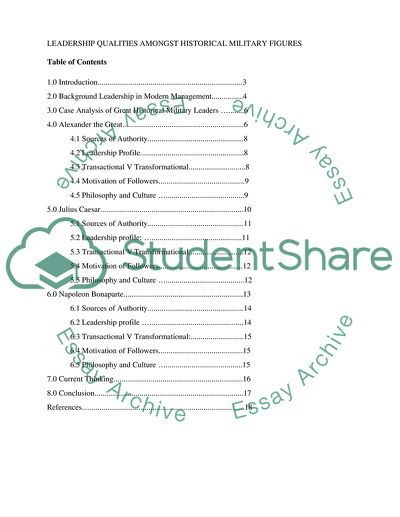Cite this document
(Great Military Figures in History: Alexander, Caesar & Napoleon Term Paper, n.d.)
Great Military Figures in History: Alexander, Caesar & Napoleon Term Paper. Retrieved from https://studentshare.org/history/1780458-leadership-qualities-among-great-military-leaders-in-history
Great Military Figures in History: Alexander, Caesar & Napoleon Term Paper. Retrieved from https://studentshare.org/history/1780458-leadership-qualities-among-great-military-leaders-in-history
(Great Military Figures in History: Alexander, Caesar & Napoleon Term Paper)
Great Military Figures in History: Alexander, Caesar & Napoleon Term Paper. https://studentshare.org/history/1780458-leadership-qualities-among-great-military-leaders-in-history.
Great Military Figures in History: Alexander, Caesar & Napoleon Term Paper. https://studentshare.org/history/1780458-leadership-qualities-among-great-military-leaders-in-history.
“Great Military Figures in History: Alexander, Caesar & Napoleon Term Paper”, n.d. https://studentshare.org/history/1780458-leadership-qualities-among-great-military-leaders-in-history.


